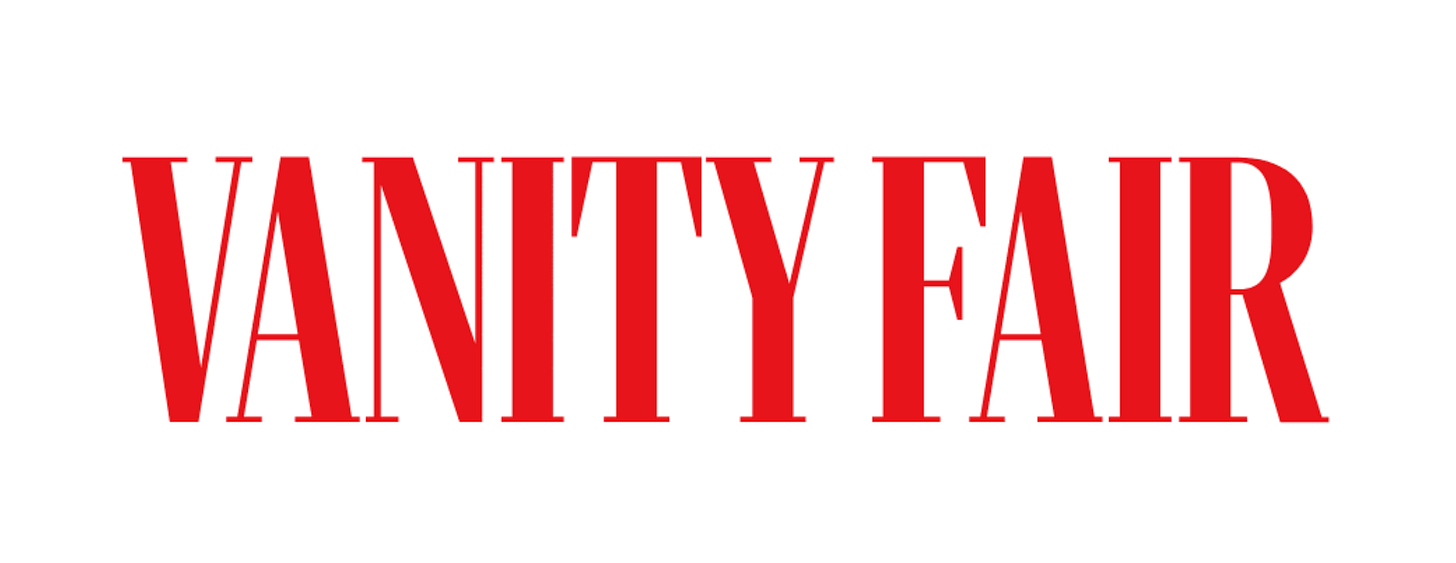"When the Going Was Good"
"Vanity Fair" journalists used to get paid $17 per word.
Having spent a sizable fraction of the first 45 or 50 years of my life standing in front of magazine racks reading for free until my feet couldn’t stand it anymore, allow me to nostalgically reflect that the good old days of magazines were pretty glorious.
Vanity Fair was never my favorite magazine, but it was awfully good at what it did: it was a sort of highbrow tabloid, reporting the scandalous downfalls of the rich and famous at length in fine prose with reliable factchecking in between beautiful ads for merchandize I’d never afford.
Reporter Bryan Burrough, co-author of the Wall Street takeover bestseller Barbarians at the Gate, reviews in The Yale Review the new memoir by Graydon Carter, editor of Vanity Fair, the lavishly profitable slick magazine where Burrough was on staff for half of each year from 1992-2017:
I’ve never talked much about what it was like to write there. Because I have always worried about how I’d come off. I mean, the money alone. I’m probably breaking some unwritten law of publishing, but here it is: For twenty-five years, I was contracted to produce three articles a year, long ones, typically ten thousand words. For this, my peak salary was $498,141. That’s not a misprint—$498,141, or more than $166,000 per story. Then, as now, $166,000 was a good advance for an entire book. Yes, I realized it was obscene. I took it with a grin.
Keep in mind that Bryan Burroughs was less of a celebrity than other Vanity Fair mainstays like Christopher Hitchens, Dominick Dunne, and perhaps Sebastian Junger. I only vaguely recognize his name. I probably would have recognized his name as that of a writer, but I might have guessed football coach. He is more of a low-profile reporter, so he was getting paid for his work rather than for his brand name.
Then there was the Hollywood money. Every third or fourth article I wrote ended up optioned for the movies. Most were in the $15,000 to $25,000 range for a renewable eighteen-month option. A handful crossed into six figures. (You haven’t lived until you’ve sat across from Robert De Niro on a film set as he reads your own words back to you—although, sadly, that adaptation of my piece “The Miranda Obsession” never made it past development.) This was an era when management allowed writers to keep that movie money. These days? One magazine I love takes 90 percent off the top.
I am aware of peers who did just as well. Nowadays, though, such windfalls are a distant memory. Today, for a rare magazine article, I’m lucky to receive two dollars a word, or $20,000 for that same ten-thousand-word story. …
Two dollars a word …
The staff’s perks were posher still. Breakfast—any breakfast—could be expensed. Dinner parties at one’s home could be catered on the company’s dime. Town cars famously stood ready to whisk you anywhere. Editors received interest-free loans to buy new homes; Condé Nast even covered moving costs. Cash advances were a signature away. There was an “eyebrow lady” who swanned in to tweeze everyone’s brows.
Keep in mind, this was never even a full-time job. Vanity Fair stories took maybe six months of my year; the rest I spent on a book.
So a million dollars per year.
Then along came the Internet.
One thing that’s fascinating about the Internet is how bad it is at aspirational advertising. It’s fine at showing me ads for, say, the kind of furnace filter it knows I have to replace regularly. But for some reason my laptop’s 16” screen is not good at showing me beautiful photos of expensive stuff that I wish I could afford the way a slick paper magazine could do so well.
By the way, how long until artificial intelligence platforms start selling product placement ads integrated into the AI’s answer to your question?
You know that’s the future.



Bryan Burrough wrote a really good book called "Days of Rage" about left wing terrorism in the '70s.
I don't know if all of Bryan Burrough's articles are listed here or if some are missing:
https://www.vanityfair.com/contributor/bryan-burrough
His first article, in the Jan. 1993 issue, is titled "Hunting for Ivan Boesky" [1937-2024].
Ivan Boesky was a corrupt, some-might-say sociopathic Wall Street'er, whose "elite diasporic ethics" sent him to prison in the late 1980s. Ivan Boesky swore that he had a religious awakening to religious Judaism, having previously failed to attach himself to his family religion, and that therefore his mega-swindling days were done.
So reformed was he, Ivan Boesky, that he generously threw in an offer to turn state's witness against other mega-fraud peddlers! The changes to his wicked ways allowed Ivan Boesky a life in reasonably comfortable exile between his spring 1990 release and his May 2024 death. Bryan Burrough, anyway, in 1992 tracked down Ivan Boesky, then two years out of prison and the article looks to still be remembered by many all these years later, a true tribute to a great piece of writing. People mentioned it highly when Boesky died in May 2024.
I don't know if long-form, written-word journalists DO this kind of leg-work much anymore. It seems rarer; a lot rarer. It was certainly still going on to a considerable degree as the 2000s-decade opened. It was certainly gone by the time the 2010s-decade closed. Ten or twenty years under the bridge, and the temptation to just quote people's tweets, and similar work, is a strong rip-current indeed.